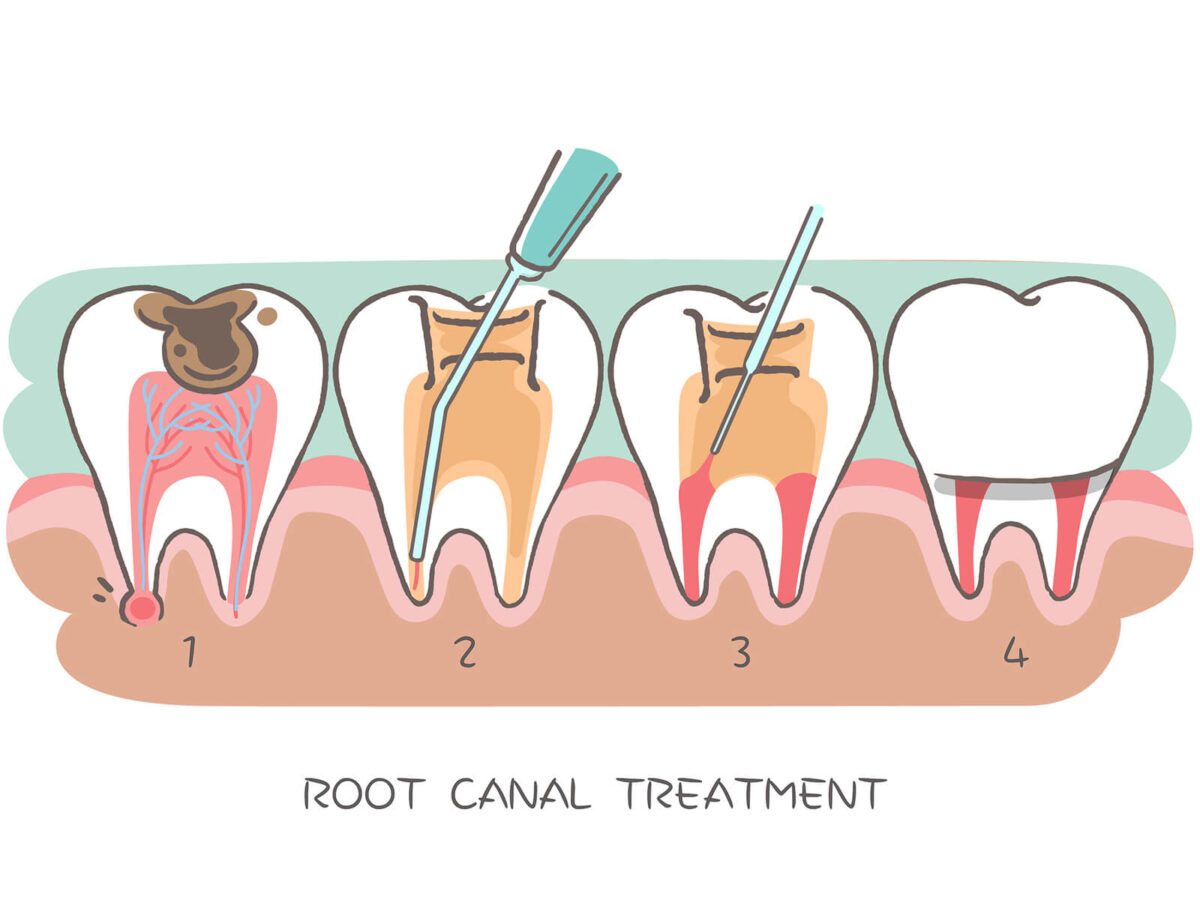Blog
Dental hygiene tips for healthy teeth & gums

Root Canal Therapy: Is It Right For You?
When it comes to dental procedures, few evoke as much trepidation as the dreaded root canal. However, modern advancements in dental technology and techniques have made root canal therapy a safe and effective solution for many patients. If you’re facing the prospect of a root canal at your Huffman Family Dentist, it’s important to understand the process and determine if it’s the right choice for your oral health.
What is Root Canal Therapy?
Root canal therapy, also known as endodontic treatment, is a dental procedure that is performed to save a severely damaged or infected tooth. During the procedure, the dentist will remove the pulp (the soft inner tissue) of the tooth, clean and disinfect the inside of the tooth, and then fill and seal the space.
This treatment is necessary when the pulp becomes inflamed or infected due to deep decay, repeated dental procedures, or a crack or chip in the tooth. If left untreated, the infection can spread to the surrounding bone and tissues, leading to more serious health problems.
Benefits of Root Canal Therapy
One of the primary benefits of root canal therapy is that it can save a natural tooth from extraction. Preserving your natural teeth is important for maintaining proper chewing function, speech, and overall oral health. Additionally, the RCT can:
- Relieve pain and discomfort caused by the infected or inflamed pulp
- Stop the illness from spreading to your other teeth or the rest of your body.
- Restore the damaged tooth’s look and functionality.
- Allow you to continue eating your favorite foods without pain
Considerations for Root Canal Therapy by Huffman Family Dentist
While the therapy is generally a safe and effective procedure, there are a few important factors to consider:
- Pain Management: Root canal therapy has a reputation for being painful, but modern techniques and anesthesia have made the procedure much more comfortable. Your Huffman Smiles dentist will work to ensure you remain pain-free throughout the process.
- Restoration: After the root canal, the tooth will need to be restored with a filling or crown to protect it from further damage. This additional step is essential for the long-term success of the treatment.
- Potential Complications: In rare cases, complications such as persistent pain, infection, or the need for retreatment can occur. Your dentist will discuss these risks with you and monitor your progress closely.
What to Expect During a Root Canal Procedure
During a root canal procedure, you can expect the following steps:
- Anesthesia: Your dentist will numb the tooth and surrounding area with local anesthesia to make you comfortable.
- Access Opening: Your dentist will open the dental crown to access the pulp chamber and root canals.
- Pulp Removal: Specialized devices will carefully remove infected or damaged pulp tissue from root canals.
- Cleaning and Shaping: Bacteria and debris will be removed from the root canals.
- Medication: To kill bacteria and prevent infection, the medicine may be inserted within the tooth.
- Filling: Gutta-percha is used to seal and prevent infection after the root canals are cleaned and shaped.
- Restoration: A temporary or permanent filling will seal the tooth access opening after the root canal.
- Follow-Up: You may need to arrange a follow-up appointment to check on tooth healing and discuss treatment or restoration alternatives.
Conclusion
In conclusion, your dentist will consider factors such as the extent of the damage, your overall oral health, and your personal preferences to help you make an informed decision about your treatment plan. Root canal therapy is a safe and effective way to save a damaged or infected tooth and restore your oral health. By understanding the benefits and considerations of this procedure, you can work with your Huffman Smiles dentist to determine if it’s the right choice for you.


